- Home
- Bryce Courtenay
The Silver Moon Page 2
The Silver Moon Read online
Page 2
Of course, I had no idea that this was a deliberate act of man and not a birth blemish. As far as I knew this hatless penis was almost certainly a deformity and one that I was constantly reminded was most definitely a punishment from God.
When things got too bad for me to endure I’d walk along a game track that began in the thorn scrub not far from the hostel and I’d go and sit on a big grey rock some distance away. It was a place nobody else ever came, a place I had to myself. The rock overlooked a soak, a small drinking hole, where the smallest game, a warthog, tiny antelope or any number of shy, usually unnoticed, lesser wild creatures, moles, pygmy hedgehogs, bush mice, lizards and birds came to drink. On one such occasion when I’d taken my small-boy misery to the rock an event occurred that was to change my life forever.
It was towards the end of the dry season before the rains come, when the soak this late in summer still held a little muddy water at its centre. Close to sunset I sat quietly blubbing. I was aware that bawling was against the rules – any form of crying was not allowed at the Boys Hostel – but here nobody could see me so I allowed myself a self-indulgent sob or two before I said my daily prayer to ask God to forgive whatever sin it was that I’d committed and please, please, to grow the skin hat I needed to cover my shame and so make me the same as everyone else. Having completed these two daily rituals I sat quietly to watch the waterhole. Small creatures approaching water are hesitant and look every which way before taking each tentative step, aware that sudden disaster in the form of a predator could appear from anywhere.
The day was beginning to shut down in a fiery blaze of tangerine-coloured sunlight. This is the last time the small and the vulnerable have an opportunity to have a drink before the dark and dangerous cloak of night descends.
With the sun beginning to set it became time for me to depart, and all I’d seen was a lone male warthog. The warthog, true to its name, is a small black pig-like animal with curved white tusks that curl over his snout to almost touch and resemble a huge, dirty white moustache. Together with a dotting of hairy moles on his snout he gives the appearance of an exceedingly grumpy old man. Thick rough hair redolent of a black jacket reaches down to cover his neck, shoulders and halfway down his back, to leave his tummy and bottom bare and hairless but for a short tufted tail that sticks bolt upright. To all appearances he looks as if he has put on his Sunday-best jacket but then left home in a terrible snorting huff, quite forgetting in the furore to pull on his trousers.
I liked seeing warthogs because they made me laugh, but then also caused me to have a bit of a second sniff, because, just as God had forgotten to give me a hat for my penis, He’d also forgotten to give the warthog a nice pair of trousers to go with his jacket. Can you imagine how tough this was for him? You see, I only got laughed at in the showers when everyone would form a circle around me to see my hatless you-know-what. If I covered it with both hands two of the bigger boys would force my arms behind my back or I’d get a whack across the head that made my eyes water (remember you’re not allowed to cry). But then again, if I’d been born a warthog I’d be walking around all over the place without my pants on. There’s always somebody who’s worse off than you are.
In the African bush darkness follows sunset alarmingly quickly, and I didn’t want to be caught on foot in the period of darkness before the moon rose. Then, just as night was about to catch me napping, from behind a whitethorn tree a giraffe emerged. Wow! It moved towards the muddy waterhole in its spectacular long stilt-legged yet perfectly coordinated and seemingly effortless manner, it’s tail like a great fly switch swinging from side to side. In the fast-gathering dark I could hear the swish of the parting scrub and the clatter of loose pebbles as it approached the small puddle at the centre of the almost dry soak.
Game other than elephant and lion always approach water cautiously and I knew that the giraffe might take some time before it decided to drink. In other words, making sure that it didn’t place itself in a position where it would be vulnerable to a predator, though its only danger was from a pride of lions hunting together, and I’d never seen any such near the Boys Hostel – although I don’t suppose the giraffe knew this.
Wisdom dictated I should leave at once, that I’d get the sjambok for staying out after dark. While I knew the beautiful creature wouldn’t harm me, I remained on the big rock frozen in anticipation lest I be the one to deny it a drink. Besides, the temptation to stay became too great to resist.
I told myself it was a full moon that night and if I waited out the ten or fifteen minutes of darkness before it rose I would easily locate the game path back to the Boys Hostel in the moonlight. The full moon would bathe the bush in a rich silver light so I’d be able to see clear as anything. I watched the sun set and waited out the frightening minutes of darkness and then, with more than a small sigh of relief, finally saw a curved sliver of moon appear over the dark and distant horizon.
In this part of Africa the moon rises almost as quickly as the sun sets. In what seemed less than ten minutes the bush was bathed in moonlight, turning the giraffe from a silhouette to its brick-brown crazy-patterned skin with each irregular brown shape placed in a soft saffron surround.
It too had waited for the moon to rise, for it now stood at the very edge of the dry circle of clay some four metres from the tiny muddy pond at the centre of the soak. Then, seemingly as if in slow motion, its front legs collapsed like a folding chair and its enormous torso came to rest on the dry, cracked clay surrounding the splash of late summer water. As a final caution, its neck swung in a wide arc across the breadth of the waterhole to the bush beyond. Then, at the very moment its towering neck lowered and its head came to rest above the water, the reflection of the moon appeared on the surface of the tiny pond and the tallest of all the great beasts drank from the silver bowl of the moon.
Forever since, when I go to think, I go to the place where the giraffe comes to drink from the silver bowl of the moon.
WE HAVE FOUR CATS AND A DOG you now know as Timmy. The cats, with the exception of Princess Cardamon, a vastly obese lilac Burmese, all found their own way unannounced into our home. But Timmy’s entry into our lives was somewhat different.
Some eleven years ago I owned seventy acres in a lovely valley inland from the Central Coast of New South Wales and on my way to it one morning I passed a cattle property run by a guy named Rick Stackman. Rick was a big-mouthed know-all, but he knew cattle and also bred a crossbreed of cattle dog for which he was justly famous. His dogs, a mixture of kelpie, border collie and blue heeler, were much in demand. But, on this particular morning as I passed his farm gate I saw that he was in the process of wringing the neck of a puppy who seemed no older than three or four months.
I stopped with the proverbial squeal of brakes, “Rick, stop!” I yelled at the big man.
‘No fucking good, mate,’ Stockman shouted back. ‘I just put him in with a mob of cows and he’s got himself stomped half t’ fuckin’ death. Never gunna make it as a cattle dog, useless little fucker . . . better off dead.’
I fished out a fifty-dollar note and demanded the pup.
‘You’re a bloody idiot, Bryce, his nose is broken and his spine crushed – I’d be taking your money, mate.’
‘Rick, I want that pup!’
‘Righto, don’t say I didn’t tell yiz . . . Be better dead, mate,’ he repeated, handing over the whimpering little fellow and accepting the fifty bucks.
I took the pup directly to the vet in Peats Ridge, where he remained for three weeks and two operations, but finally made it home.
We now live in Canberra and every evening I take the now aging Timmy Courtenay up to the sports oval where he meets a dozen or so of his friends for a bum-sniff hello, tail-wagging romp together with a modicum of ball chasing. I count myself fortunate that their collective owners have become my friends as well.
Timmy’s puppy experience is beginning to show – he has arthritis, limps a bit and is getting slower by the day. He sleeps in a la
rge basket on the carpet at the foot of my bed and snores like a chainsaw at night. But life without Timmy Courtenay would not be quite the same lovely experience. Even the cats tolerate him – all but Muschka, who only just accepts him, but then she’s got a few attitude problems of her own and doesn’t like to shower too much praise about, especially for a canine. Although I think she sort of mothers him in her own strange way. ‘Piss off, darl’ is her favourite expression when he approaches. But at least it’s not said with a fangs-showing hiss.
WE ARE TOLD THAT OUR BELIEF SYSTEMS are usually inculcated in childhood, some negative, others positive, so that parents and institutions – religious and others – are responsible for what we believe as adults. The influences on my young life were a mixture of all of these. I was born illegitimately, or to use the common euphemism, to a single parent. This involved some time spent in an orphanage and some with a mother prone to nervous breakdowns, who had embraced a charismatic religion. Finally, at the age of eleven, I received a scholarship to a boys’ school closely patterned on the English public school system.
Putting all this together as the bunch of influences that formed my character, it may be said that I was lonely, frequently bullied, and often whipped, trusted few adults, and soon realised that institutions regarded anyone who appeared to be an individual or clever with great suspicion; sadness was a common emotion. Furthermore, I knew at an early age that I was a sinner and therefore filled with guilt and would need to be saved by being born again. To round things off, I was influenced by the teachings of a bigoted, supposed racially superior, white male supremacist, upper-class South African boys’ boarding school. Taking all these things into consideration there seemed little room for a positive belief system to emerge.
However, my first belief is that we are responsible for ourselves. A teacher once informed me that the best helping hands you are ever likely to experience are attached to your wrists. I became a very competent boxer so that any bigger boy taking me on soon knew I was no pushover. I was said to be very bright, but I think it was more that I refused to give up; in the end it was persistence more than anything that won the day. I decided that between the Dutch Reformed Church (orphanage), the Apostolic Faith Mission (parent) and the Church of England (boarding school) it was probably a good idea to fashion my own sense of God – someone who expects me to exercise the more noble aspects of humanity and who doesn’t wish to be constantly bothered with the things in life I ought to be able to take care of myself.
This was all very well, but it didn’t quite take care of my low self-esteem, an almost inevitable result of the childhood I had lived. I decided to hide this sense of inadequacy, and there are two places where a child can safely do this. The first is to merge with the crowd, to become nothing in particular, neither noticed nor noted. Dead average is always a safe hiding place. The second is way up front, the ‘catch me if you can’ position. And so I tried my best to excel, to use to the full extent what small gifts I had been given. In the process I developed a mantra for my life, which goes like this:
When you’re skating on thin ice, you may as well tap dance.
I also think of it as ‘the power of one’, that ability we all have to overcome the negative influences in out lives and to finally triumph without having to become a bastard; to spit in the face of adversity and circumstance and to refuse to be beaten by either or both.
These days spontaneous kindness is looked upon as a need to be loved by everyone; charity is seen as a manifestation of guilt; happiness is regarded as a lack of intelligence and even pity has to be carefully qualified to receive the approbation of one’s peer group. At the age of six I recall being made to learn, by shouting out by rote, what my kindergarten teacher at the time termed ‘Our very nice saying’:
I shall pass through this world but once,
Any good thing I can do, or any kindness I can show
To any fellow human being . . . let me do it now,
For I shall not pass this way again.
It is hardly appropriate in today’s cynical world, but after all the effort I’ve put into life, I have come to the conclusion that ‘Our very nice saying’ is what I believe life is intrinsically all about.
PUBLISHED IN I BELIEVE THIS, EDITED BY JOHN MARSDEN
(RANDOM HOUSE AUSTRALIA, 2004)
IF MUSCHKA THE CAT were to be personified you’d recognise her immediately. She’s the scrawny lady in her early forties you invariably see shopping in the mall who wears an orange tracksuit, clean but not new, thongs in the summer, cheap runners in the winter. Her hair is always short, badly cut and unnaturally blonde and in need of a touch-up at the dark roots. She wears a smudge of lipstick, the colour clashing with her tracksuit, and her face has been exposed to too much sun so that premature aging is already apparent around her eyes. She seems never without a cigarette drooping from the right-hand corner of her mouth and it’s difficult to decipher the colour of her eyes as she squints from the twirl of rising blue smoke when she looks up.
She refers to both genders as ‘darl’ and doesn’t take any shit from anyone and tells it how it is – or rather, how she perceives it to be. Any psychologist will tell you she’s looking for love but has given up thinking she may ever find it. Also that she secretly feels deeply inadequate and uses her tough outward demeanour to conceal her inner needs. She commences getting pissed around five at night with her first glass of ‘Sav B’ tapped from a cardboard cask.
If you’ve come across her when in the supermarket then translate her into a feline and you’ve got Muschka Courtenay, the needy one – the cat that came in from the rain and the cold and the dangerous bush.
I first saw Muschka while taking Timmy for our morning walk up into the hills some two kilometres away from the farm, when I noticed two sharp green eyes appeared in the undergrowth beside the overgrown pathway.
Tim will run for his life at the mere sight of a cow or a horse and he loves to chase wallabies and wild goats, and I could hear him barking in the distance, displaying (ha ha) the so-called macho side of his character.
I knew at once that the pair of eyes peering at me did not belong to a genuine feral cat, as they are much too wary to show themselves. This was probably a cat that had lost its owners. So I ‘puss-puss’d’ for a few moments before moving away in the direction of Timmy’s excited barking, aware that a domestic cat can roam up to ten kilometres from its home. The following day I left a tin of cat food beside the path where I’d seen the eyes. On our return from our walk it had been eaten. This was definitely a lost cat in the process of going feral.
I repeated the cat food every day for at least a month, calling ‘puss-puss’ and placing the food a few hundred metres closer to my farm gate each morning. Standing fifty or so metres away I’d wait and she’d soon appear to gulp down the gift of food.
Eventually I drew the shabby, scrawny little grey cat to the gate. It took another two weeks with her hiding among the agapanthus in the garden before one wild and stormy night I passed the front door and saw two little eyes peering hopefully through the glass. I opened the door a crack and left it ajar. The thunderstorm lasted all night and by morning the little cat was nowhere to be seen. Then a little later when I went upstairs to my study to start my day’s writing I discovered a very wet, bedraggled little cat cowering under my desk.
Muschka has never left me since, and sits on my lap or on my desk all day as I write. If any of the other cats – Cardamon, Ophelia (Philly) and Pirate – should decide to approach us while ‘we’re’ writing, she arches her back and snarls and hisses. “He’s mine, piss off!” she snaps, in a distinctly lower-class cat-cent.
I must say the other three cats take absolutely no notice and she fools no one, though, as I said somewhere else, she tolerates Timmy, calls him ‘darl’, accepting his presence at my feet as part of the essential writing team, even though I suspect she’s illiterate.
I know she loves me to bits. Although, if I don’t stroke her in her needy mom
ents, which are frequent, she reaches up and gives me a whack on the jaw, though I must say never exposing a deadly claw.
One thing I have to say in her favour is that she’s got a lot of internal fortitude. On one occasion the neighbour’s rottweiler ventured into the garden while Muschka, as ever, was tailing me. His name is Rocky and he’s not a very nice dog. Not as bad as the reputation his breed enjoys, just . . . well, not nice. Timmy is terrified of him and, seeing him approach cowered beside me, his ears flattened, while his warning to me of the approaching presence of the unwelcome visitor more closely resembled a whimper than a protective growl.
Suddenly the rottweiler let out a frightened yelp then turned and took off, fleeing for its life, his tail so far between his legs he was practically using the tip to inadvertently clean his teeth. Mounted astride his neck was Muschka, her claws digging fiercely into either side of Rocky the Rottweiler’s jowls. This is a cat that takes no crap when it comes to protecting a loved one, and I feel pretty sure Timmy, the Dog of Dogs, is secretly counted but never openly admitted to be on this very selective list.
I GUESS AS A WRITER I care about words more than most and while it’s natural that the new technology such as Facebook and Twitter and the by now almost universally used email encourages us to use a bunch of words that are colourless and often cut to verbal ribbons – ‘How R U’, ‘Luv U’ or similar – it seems to be a process that is squeezing the life out of language.
I am aware that language is a constantly changing medium – new words and forms arrive, old ones die out. Like life, a great many common words have a brief lifespan before passing away. But English is a beautiful and expressive language that more than most languages can explain through idiom our society to ourselves.
Truncating words into small, common, lifeless little objects, meaningless phrases as if what we have to say and therefore we ourselves are unimportant and worthless seems to me to be a tragic transgression into nowhere. Someone once said we are known by the words we use.

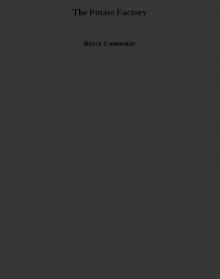 The Potato Factory
The Potato Factory The Power of One
The Power of One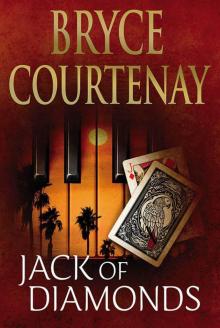 Jack of Diamonds
Jack of Diamonds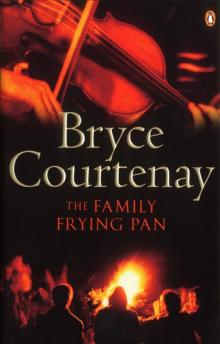 The Family Frying Pan
The Family Frying Pan April Fool's Day
April Fool's Day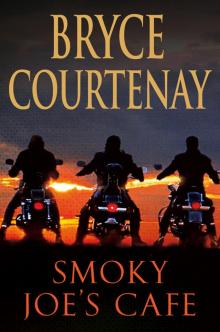 Smoky Joe's Cafe
Smoky Joe's Cafe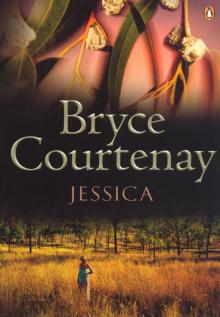 Jessica
Jessica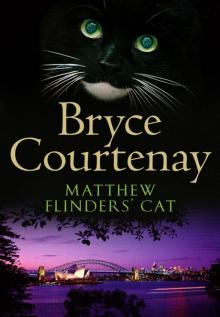 Matthew Flinders' Cat
Matthew Flinders' Cat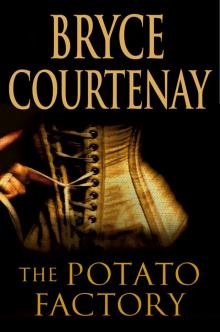 Potato Factory
Potato Factory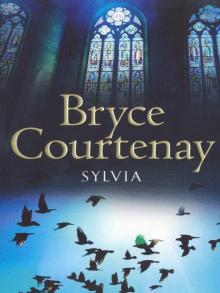 Sylvia
Sylvia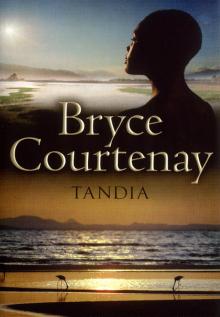 Tandia
Tandia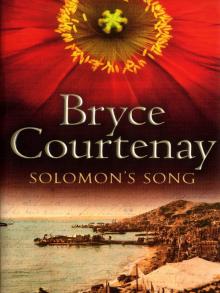 Solomon's Song
Solomon's Song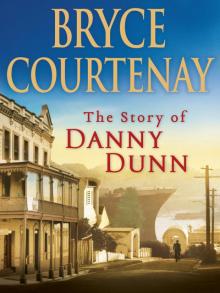 The Story of Danny Dunn
The Story of Danny Dunn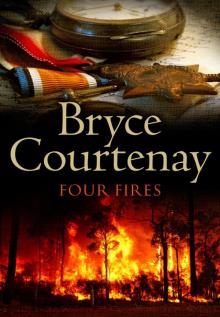 Four Fires
Four Fires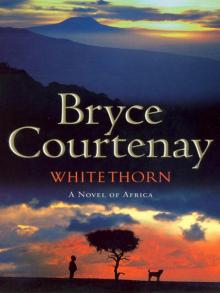 Whitethorn
Whitethorn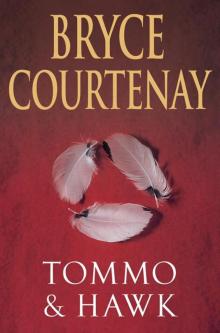 Tommo and Hawk
Tommo and Hawk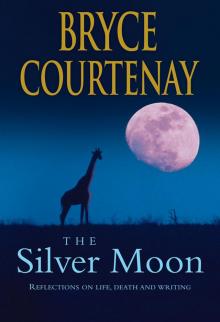 The Silver Moon
The Silver Moon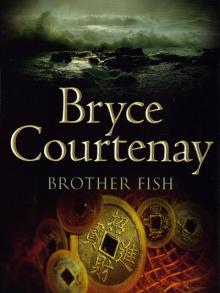 Brother Fish
Brother Fish FORTUNE COOKIE
FORTUNE COOKIE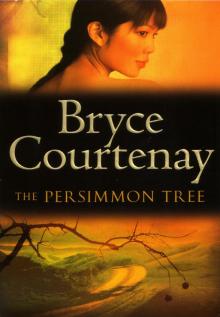 The Persimmon Tree
The Persimmon Tree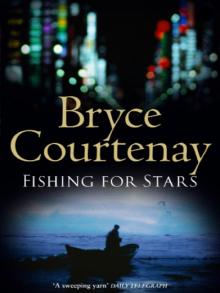 Fishing for Stars
Fishing for Stars